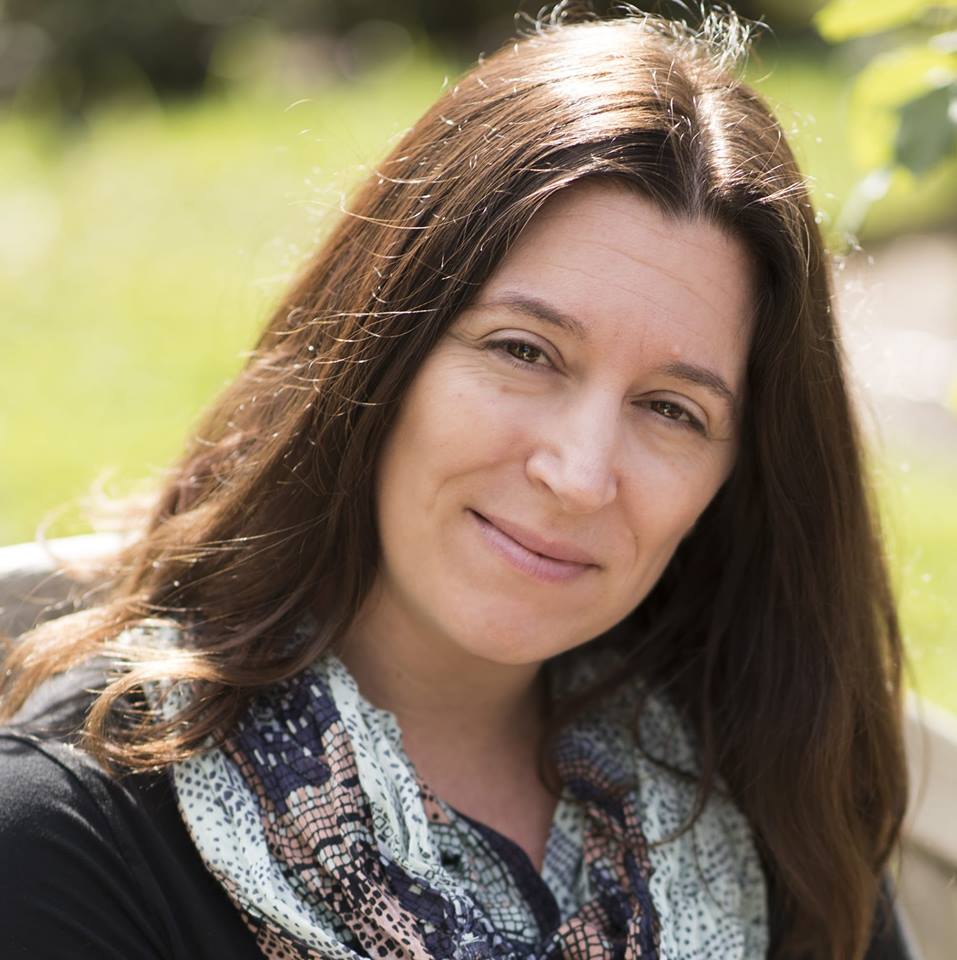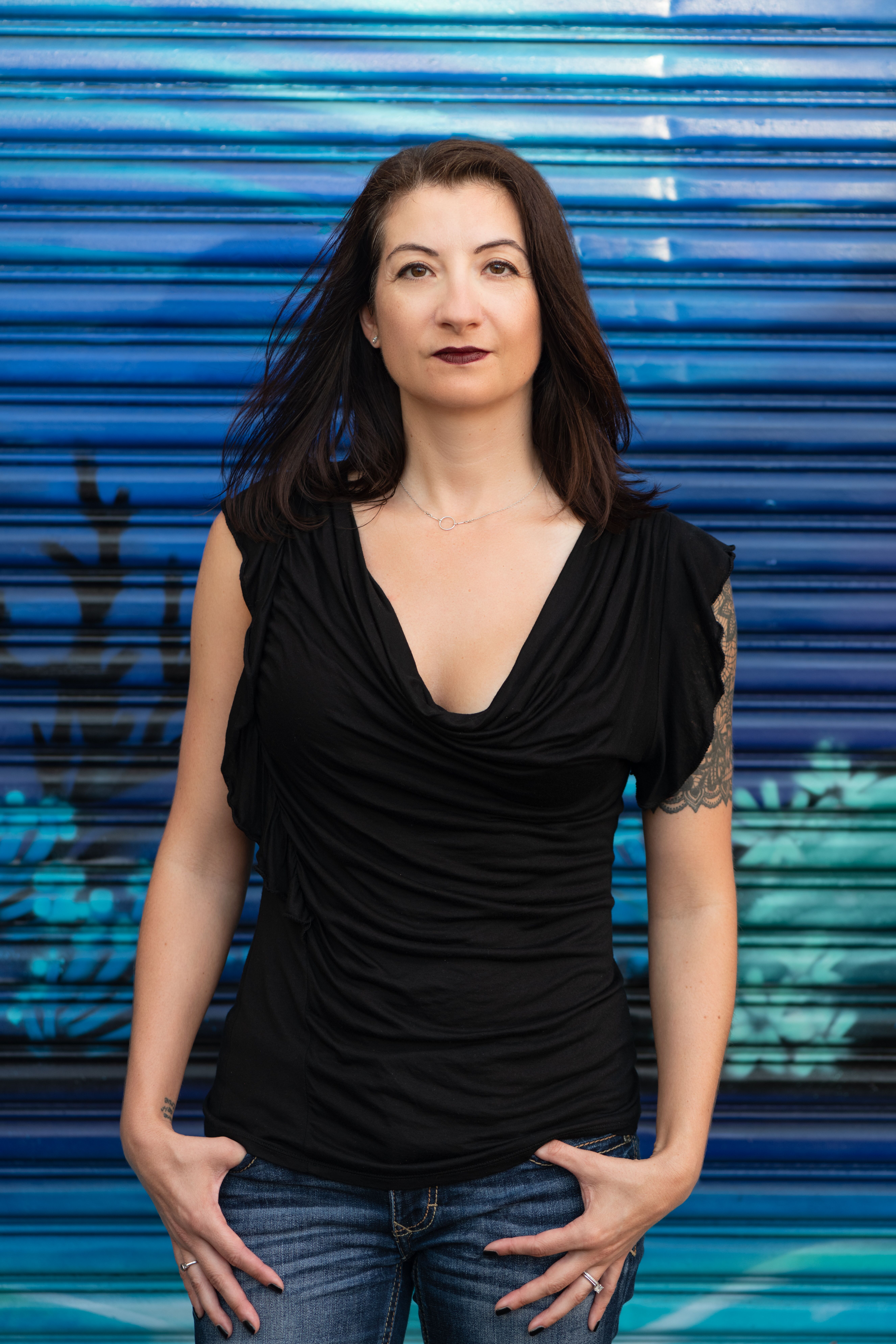ISSN: 1941-4137
POETRY THAT ENACTS THE ARTISTIC AND CREATIVE PURITY OF GLASS
POETRY THAT ENACTS THE ARTISTIC AND CREATIVE PURITY OF GLASS

Hannah Grieco is a writer and advocate in Arlington, VA. Her work can be found in The Washington Post, The Rumpus, Huffington Post, and more. Find her online, on Twitter, at @writesloud, and at Porcupine Literary as the fiction editor.
Also by Hannah Grieco:
Interview with Susan Muaddi Darraj
Interview with Tatiana Figueroa Ramirez
Interview with Tara Laskowski

Courtney LeBlanc is the author of Beautiful & Full of Monsters (Vegetarian Alcoholic Press), chapbooks All in the Family (Bottlecap Press) and The Violence Within (Flutter Press), and a Pushcart Prize nominee. She has her MBA from University of Baltimore and her MFA from Queens University of Charlotte. She loves nail polish, wine, and tattoos.
Also by Courtney LeBlanc:
Beautiful & Full of Monsters
All in the Family
Elegy for My Still-Living Husband
February 24, 2020
Interview with Courtney LeBlanc, author of Beautiful and Full of Monsters
Courtney LeBlanc is no stranger to writing about hard things. Her previous chapbooks The Violence Within and All in the Family both explored relationships and situations that were nuanced, stunning, and, at times, uncomfortable to read. They cut straight to the heart of whoever she aimed at — including herself. LeBlanc’s new full-length collection Beautiful and Full of Monsters continues that thematic exploration. And honesty like this, though gorgeous and judiciously served up, can still require a moment to swallow. A relationship on the border of violence, a connection broken, a life and lifetimes of self-destruction: Leblanc changes you through her story-telling in verse.
HG: How did this collection begin for you?
CL: Most of these poems were written during my MFA program at Queens University of Charlotte. As I ended my last semester and needed to pull together my thesis, it became clear there was a thread throughout these poems and the manuscript sort of fell into place.
HG: You boldly address violence in this collection, particularly from sources you thought you could trust. Does that honesty cost you? What do you do to keep yourself safe and whole when writing about such violent experiences?
CL: Writing about violence can be costly but I also think it’s necessary. For me the hardest thing is people who automatically assume the poems I’m writing are about my partner, my husband Jay — and not all of them are, but readers make those assumptions and then I feel like I’m having to make explanations that I don’t always want to make. I want readers to take what they want and need from a poem without putting all their assumptions back on me, the writer. Many of these poems address previous relationships so I’m fortunate that I’m in a safe, stable relationship — that makes it easier to write about the scary things, knowing I’m not in that situation.
HG: I found myself deeply impacted by that narrative on aggression and violence, both in person when you read your work and while reading this collection. Have people come up to you after readings or written to you about this aspect of your work?
CL: Yes, I’ve been approached by people after readings and most are really supportive and thankful that I write about these topics. Not everyone has the words or the ability to articulate these things and so I’m honored that I can and that people are moved by my poetry.
HG: What was the hardest poem here to write? The hardest one to include in the book?
CL: It would be easy to say the hardest poems to write are the poems that focus on violence but sometimes the hardest poems to write are the ones that focus on hope and light, or the poems that only hint at the terrible, wonderful things that could happen. My poem, "Break," focuses on one small moment in my kitchen — when I dropped a bottle of wine and it shattered, and the interaction between the other person and myself. There’s so much quiet tension in the poem and that was hard to capture. I don’t know if there was any specific poem that was hardest to include, some days it felt like all of the poems were hard to include.
HG: You are one of the most prolific poets I know, publishing in countless journals and anthologies. What drives you to write poetry?
CL: This wonderful, horrible world we live in. I say that sort of tongue-in-cheek, but it’s true — everyday life inspires me to write poetry. I also write poetry as a way of processing things — emotions I’m feeling, stress I’m dealing with, situations I’m experiencing, but also things I observe. It’s a terrible habit for readers to assume that every poem is autobiographical and that’s not true, some of my poems are wholly imagined or address issues others are dealing with.
HG: Where do you get your ideas for poems that are not autobiographical?
CL: Everywhere! Things I read in the news, experiences friends are having, prompts, and reading poetry — other poets are a huge source of inspiration for me and often push me to write.
HG: Your work life is almost a polar opposite to your creative life, it seems. How do you balance such duality?
CL: Because I work in a non-creative field (as a federal government employee) I think it allows me to put my creative energy into my writing, instead of into a creative-type job. And while I would love to be a full-time poet, that unfortunately does not pay my mortgage so having a non-creative day job allows me the funds to pursue creative endeavors. In the past I’ve struggled with putting boundaries on my day job, it would bleed into every hour and my workday wouldn’t stop when I left the office. Over the past year I’ve worked much harder on creating and maintaining boundaries to ensure my creative time is protected.
HG: You have two graduate degrees and are working on a third right now, and only one of these degrees is in writing. What role does poetry play in your daily life? How does it complement or complicate your work, relationships, and identity?
CL: I would love to write poetry full time and be able to make a living but the reality is poetry will never pay my mortgage. That said, for me being a poet is the biggest, truest part of who I am. It probably both compliments and complicates my work, relationships, and identity. I don’t always talk about my poetry but eventually, most people I work with learn I’m a poet. It complicates when they google me and read the poems and are surprised by what they find — I don’t shy away from intense, hard, difficult topics in my poetry and this can catch some people off-guard — they don’t know how to reconcile the things I write about with the professional I am at work. And then there’s always the risk of colleagues asking, “Are these poems true?!” which is a huge no-no — don’t assume they’re all gospel but also, don’t ask, just take from the poem what you need. Knowing if a poem is 100% true or 50% true or completely imagined doesn’t change the poem or what it made you feel.
HG: How long have you been writing poetry? Have you written in any other genres?
CL: I’ve been writing poetry since I was a teenager, though I got serious about it in my 30s. That’s when I decided to go back to school to get my MFA and created a dedicated writing practice that I continue today. I’ve dabbled a bit in creative nonfiction but it’s not my preferred genre. I identify as a poet.
HG: Who is one contemporary poet that really speaks to you right now?
CL: The dreaded question of naming one poet! There are so many I love, but Shaindel Beers, Megan Falley, and Jeanann Verlee are a few of my favorite contemporary poets.
Glass: A Journal of Poetry is published monthly by Glass Poetry Press.
All contents © the author.
All contents © the author.





